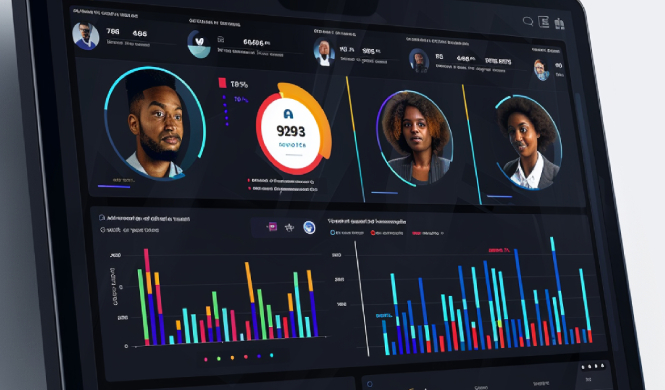Event Manager’s Guide – Maximizing Matchmaking – The Virtual Event Software Features that Drive B2B Networking ROI
Synopsis The failure of many virtual events to generate quality leads often stems from basic, non-strategic networking tools. To maximize ROI, the focus must shift to advanced matchmaking features within the virtual event software. Effective virtual event management utilizes AI to pair attendees based on their profiles, leading to targeted …
Event Manager’s Guide – The Exhibitor Value Proposition – Driving Measurable Lead Generation in Virtual Event Platforms
Synopsis The core financial success of an event depends on the exhibitor value proposition, which must be measurable even in a digital setting. Virtual event platforms must be designed to facilitate high-quality lead generation through virtual booths, B 2 B matchmaking, and interactive demos. The virtual event software should provide …
Event Manager’s Guide – Beyond the Keynote- Maximizing Virtual Event Platforms ROI with Data-Driven Gamification
Synopsis The greatest challenge in the digital events space is proving tangible ROI. Simply hosting a webcast or a recorded keynote on virtual event platforms is no longer enough; success is measured by quantifiable attendee engagement and lead generation. This requires a move beyond passive viewing to active participation, a …
The Virtual Event Planner’s Blueprint – Strategic Planning Virtual Events for Maximum Engagement and Audience Reach
Synopsis Successful planning virtual events requires a strategic blueprint that prioritizes engagement design and scalable delivery. A professional virtual event planner moves beyond simple content scheduling to design interactive journeys that maximize audience reach. This strategic approach is supported by leading virtual event management companies who leverage high-performance virtual event …
Event Manager’s Guide – The Streaming Standard – Why Partnering with a Top Event Streaming Company Elevates Your Virtual Event Platforms
Synopsis The success of any virtual or hybrid event is fundamentally dependent on production quality. In a digital world where professional content is the norm, relying on basic streaming solutions exposes your brand to the risk of poor audio, buffering, and technical failures. To establish a broadcast-quality standard, Event Managers …
Event Manager’s Guide – Enterprise Security Checklist – Choosing a Virtual Event Management Platform for Secure Corporate Virtual Events
Synopsis For corporate virtual events, security isn’t a feature—it’s the foundation of trust. When hosting an internal town hall, a sensitive product launch, or a partner summit, the protection of proprietary data and attendee privacy is non-negotiable. Relying on basic streaming tools or consumer-grade platforms exposes the organization to unacceptable …
Event Manager’s Guide- The Streaming Standard- Why Partnering with a Top Event Streaming Company Elevates Your Virtual Event Platforms
Synopsis The success of any virtual or hybrid event is fundamentally dependent on production quality. In a digital world where professional content is the norm, relying on basic streaming solutions exposes your brand to the risk of poor audio, buffering, and technical failures. To establish a broadcast-quality standard, Event Managers …
Event Manager’s Guide- Enterprise Security Checklist- Choosing a Virtual Event Management Platform for Secure Corporate Virtual Events
Synopsis For corporate virtual events, security isn’t a feature—it’s the foundation of trust. When hosting an internal town hall, a sensitive product launch, or a partner summit, the protection of proprietary data and attendee privacy is non-negotiable. Relying on basic streaming tools or consumer-grade platforms exposes the organization to unacceptable …
Event Manager’s Guide: Beyond the Keynote: Maximizing Virtual Event Platforms ROI with Data-Driven Gamification
Synopsis The greatest challenge in the digital events space is proving tangible . Simply hosting a webcast or a recorded keynote on virtual event platforms is no longer enough; success is measured by quantifiable attendee engagement and lead generation. This requires a move beyond passive viewing to active participation, a …
AI at the Helm Why Smart CEOs Redefine Events with Intelligence
Synopsis Artificial Intelligence (AI) is no longer a distant future promise—it is a present-day differentiator for CEOs who understand its strategic potential. While AI has transformed industries from healthcare to finance, its role in event management is often underestimated. Yet, events are among the most data-rich environments an enterprise can …










